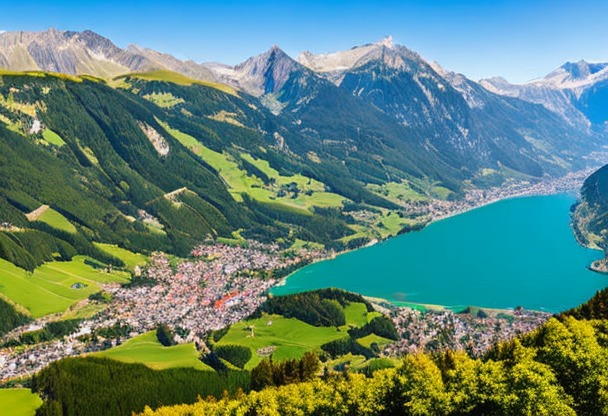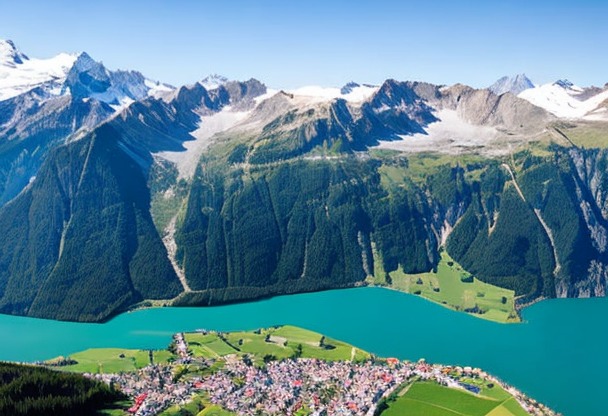Best time to travel to Austria
Choosing the right time for your trip to Austria can make all the difference. It's important to consider climatic elements, seasonal events and busy tourist periods to maximize your travel experience.

Location
Climate
Low and high season periods
Tourism in Austria varies according to the season, with periods of high season and low season. low season and of high season. Each season has its advantages and disadvantages, depending on your personal priorities and preferences.Low season (January, February and November)
There low season generally corresponds to the months of January, February and November. During this period, the country experiences a colder, wetter climate, with average temperatures hovering around 0°C. However, the winter period is ideal for fans of winter sports such as skiing and snowboarding. Mountain resorts are less crowded and offer more affordable accommodation and ski passes.High season (June to September)
There high season is between June and September, during the warmest and sunniest months of the year. Average temperatures range from 18°C to 25°C, making the summer period ideal for enjoying the many outdoor activities available, such as hiking, cycling or swimming in Austria's lakes. However, higher tourist numbers and higher accommodation prices are to be expected.Public holidays in Austria
In Austria, several public holidays are celebrated throughout the year. It may be worth planning your trip around these events to discover local traditions and take part in the festivities. Here is a non-exhaustive list of the main public holidays:- January 1st New Year's Day
- January 6 : Epiphany
- March/April Good Friday and Easter Monday (dates vary)
- May 1st Labour Day
- May/June Ascension and Pentecost (dates vary)
- August 15 Assumption
- October 26 National holiday
- November 1st : Toussaint
- December 8 Immaculate Conception
- December 25 : Christmas
- December 26 Saint Étienne
Major cultural events in Austria
Austria is a country rich in cultural events, particularly in the fields of music, theater and dance. The capital Vienna, in particular, is renowned for its lively cultural life. Here are some of the most important events:Salzburg Festival (July/August)
This prestigious performing arts festival takes place every year in Salzburg, Mozart's birthplace. Its varied program includes operas, classical music concerts, plays and dance performances. Performances take place in the city's most emblematic venues, including Mirabell Palace and the Festival Palace.The Vienna Opera Ball (February)
This annual social event attracts dance and music lovers from all over the world. The famous Vienna Opera House hosts a gala evening of ballets, concerts and prestigious dinners, as well as a grand ball where participants can dance to the rhythm of the Viennese waltz.Austrian National Day (October 26)
The national holiday is celebrated on October 26 to commemorate Austria's declaration of permanent neutrality in 1955. Festivities are organized throughout the country, including concerts, parades and fireworks.Christmas markets (December)
During the month of December, Austrian towns are decked out in their finest decorations to celebrate the Advent season. Christmas markets are a popular tradition in Austria, with stalls offering local culinary specialities, hot drinks and handicrafts ideal for end-of-year gifts.Insurance
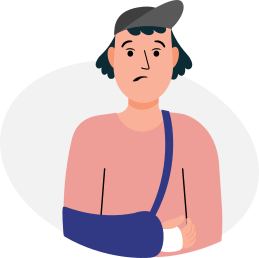
Your credit card does not cover you in all situations, that is whyIt is essential to take out insurance before you leave to avoid any unpleasant surprises. If you need to see a doctor or be hospitalized, in some countries, medical costs are very high and you will then find yourself having to pay several thousand euros.
Our partner Chapka Insurance proposes the contract CAP ASSISTANCE 24/24 with many essential guarantees.
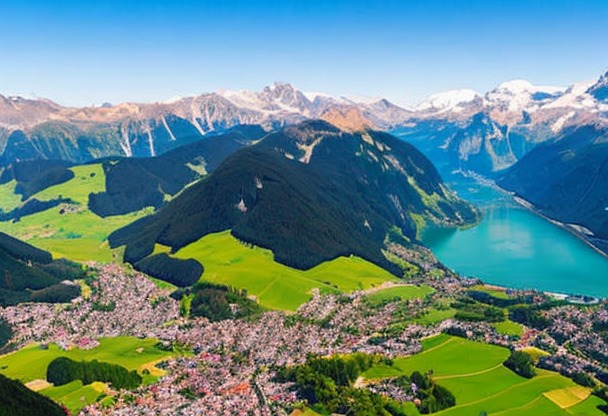
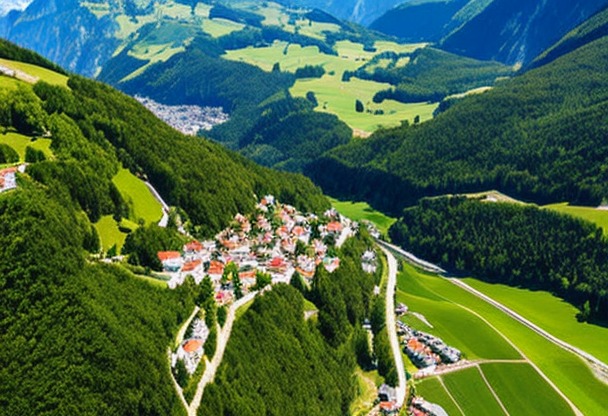
Flights
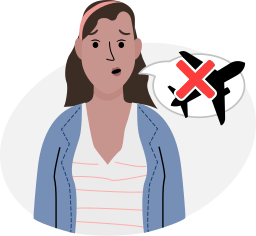
Your flight has been cancelled or delayed ?
You may be eligible for a compensation of up to €600 ! For this, lawyers are responsible for handling your claim with the airline and are only paid when the reimbursement is effective.
In conclusion, no financial risk for you, only advantages!
Immigration statistics for Austria: a cosmopolitan population
According to data from Statistik Austria, in 2020, around 16% of Austria's residents were born abroad, and almost 23% held a foreign nationality. The main expatriate communities in Austria come from the following countries:- Germany
- Türkiye
- Serbia
- Romania
- Bosnia and Herzegovina
Reasons for immigration to Austria
The main reasons why people immigrate to Austria are :- The work
- The studies
- Family reunification
- Applying for asylum
Most popular visas in Austria: points system and residence permits
To enter and reside in Austria, foreign nationals must obtain a visa or residence permit. Nationals of member countries of the European Economic Area (EEA) and Switzerland do not need a visa to enter Austria, but must register with the local authorities if they wish to live here for more than three months.D visa: for temporary stays outside the EEA
People from countries outside the EEA and Switzerland generally require a D visa for a temporary stay in Austria. This visa allows you to stay in the country for up to six months, and is often used by students, seasonal workers and business visitors.Rot-Weiß-Rot - Karte" residence permit
Austria has introduced a points system to attract skilled workers from third countries. The "Rot-Weiß-Rot - Karte" (red-white-red card) residence permit is granted to people who meet specific criteria, such as :- High level of education
- Relevant professional experience
- German and/or English language skills
Family reunification: the importance of family ties
Family members of Austrian nationals or persons holding a residence permit in Austria can also apply for a residence permit to join their relatives. Requirements vary according to the type of family relationship (spouse, child, parent, etc.).International tourism figures for Austria: a flourishing sector
Austria is a popular destination for tourists from all over the world, thanks to its many cultural and natural attractions. Visit tourism sector is an important part of the national economy, generating considerable revenues every year.International tourist arrivals: constantly rising figures
According to data published by the World Tourism Organization (UNWTO), Austria attracted almost 30 million international visitors in 2019. The main countries of origin of these tourists are:Austria's tourist attractions: diversity and cultural richness
Austria offers a wide variety of attractions for visitors:- Breathtaking natural landscapes, such as the Austrian Alps and Hohe Tauern National Park
- Historic and cultural cities such as Vienna, Salzburg and Innsbruck
- A rich musical heritage, with festivals and concerts all year round
- World-renowned sporting events, including the Alpine Skiing World Championships and the Austrian Formula 1 Grand Prix
